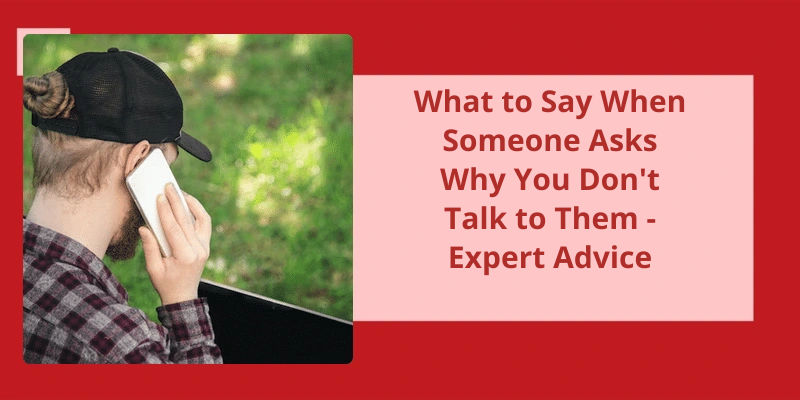This can be quite a frustrating experience for anyone who rely on their phones for communication. It can make it almost impossible to have a clear and productive conversation, and in worst cases, leads to a disconnection between both parties. While the issue of hearing oneself on a phone is quite common, there are various possible reasons that may cause this problem to occur. It’s important to understand these underlying causes so that you can identify the best solution to fix this issue and prevent it from happening in the future.
Why Can I Hear Myself When I Talk in My Mic?
However, it can sometimes be distracting or even irritating, especially if theres a slight delay between your voice and the monitoring. To turn off microphone monitoring, navigate to your devices sound settings and look for an option related to microphone or input. You may need to try different menus or sub-menus depending on your device and operating system.
Another possible reason why you can hear yourself when you talk in your mic is that youre using an open-back headphone or earphone. Unlike closed-back headphones that isolate sound and prevent leakage, open-back ones allow sound to escape through small vents or holes. This can create a more natural and spacious soundstage, but it can also cause sound bleeding and feedback if youre using a mic. To avoid this, you may want to switch to closed-back headphones or use a pop filter or foam windscreen to reduce the plosives and wind noise.
If youre using a separate audio interface or mixer, there could be a routing issue thats causing the mic signal to leak into the monitor output. To troubleshoot this, check your manual or online resources for your specific device and make sure that all the connections and settings are correct.
In some cases, hearing your own voice when you talk in your mic could be a sign of latency or lag. Latency refers to the delay between when you say something and when you hear it back, which can be caused by several factors, such as your computers processing speed, your audio drivers, or your network connection. To minimize latency, you can try adjusting your buffer size, using a lower sample rate, closing other programs or tabs that may hog your CPU, or using a wired connection instead of Wi-Fi.
Some people are more self-conscious or critical of their own voice than others, and hearing it back can trigger anxiety or discomfort. Others may have a medical condition such as hyperacusis or tinnitus that makes them more sensitive to sounds. In these cases, you may want to seek professional help or advice from a therapist, audiologist, or vocal coach to address the underlying causes and improve your confidence and performance.
How to Reduce Background Noise While Using a Microphone
- Use a noise-cancelling microphone
- Position your microphone close to your mouth and away from noise sources
- Reduce ambient noise by closing windows, doors, or using sound-absorbing materials
- Use a pop filter to reduce plosive sounds
- Speak clearly and avoid touching or knocking your microphone
It can be quite frustrating to hear an echo of one’s own voice during an iPhone call, and yet it’s a common occurrence. There are a few reasons why this happens, and in this article, we will explore them. But before delving into the reasons, it’s important to know that using the speaker to converse during a conversation is the main cause of the iPhone echoing on calls.
Why Do I Hear My Own Voice on iPhone?
Another factor that contributes to the echo on iPhone calls is the lack of proper acoustics in the environment. When we speak in a room that’s hard surfaces such as walls, ceilings, and floors, sound waves tend to bounce around, creating an echo. This echo can interfere with the clarity of our speech and make it difficult for the listener on the other end of the phone to hear us clearly.
This is particularly common in older iPhone models that may have suffered from wear and tear over time. Faulty hardware can also lead to other audio issues such as static, popping sounds, or cut-offs during calls.
Another method is to adjust the iPhones volume level. When the volume is set too high, it can cause feedback, creating an echo effect. Lowering the volume to a moderate level can help to eliminate the echo.
Apple frequently releases updates to address bugs and issues on their devices, and updating the phone to the latest software version may help to resolve any audio issues, including echoing on calls.
Improving Acoustics in Your Home or Office to Reduce Echoes on Calls
- Add carpets or area rugs to absorb sound
- Hang curtains or drapes to reduce reverberation
- Place bookcases or shelves against walls to break up sound waves
- Invest in acoustic panels or tiles for optimal sound absorption
- Use soundproofing materials such as foam or insulation where possible
- Avoid hard surfaces such as concrete or tile
- Position furniture strategically to maximize sound absorption
- Install acoustic seals around doors and windows to prevent sound leakage
- Consider adding plants to help absorb sound
If you’re experiencing difficulties with people hearing you during phone calls, don’t panic! There are a few simple steps you can take to troubleshoot the issue. From cleaning the microphone pathway hole to checking for firmware updates, we’ve put together a list of potential solutions to help you get back to clear communication.
How Do You Fix My Phone if People Can’t Hear Me?
If you find that people cant hear you when you make phone calls, there are a few things you can do to troubleshoot the issue. First, try cleaning the microphone pathway hole on your phone. Dust, dirt, and debris can accumulate in this area, which can affect the way your voice is transmitted during calls. Use a small, soft-bristled brush or a can of compressed air to clear out this area.
This can help to clear out any temporary glitches that may be causing the issue. Simply turn off your phone, wait a few seconds, and then turn it back on again. This can be especially helpful if youve noticed that the problem only occurs after youve been using your phone for a while.
It’s also a good idea to check for any firmware or software updates that may be available for your phone. Manufacturers often release these updates to improve the performance of their devices, so installing the latest updates on your phone can help to fix any bugs or glitches that may be impacting your microphone.
Finally, if none of the above steps work, you may want to disable any apps that you don’t need. Apps that are running in the background can use up processing power and memory, which can affect the performance of your microphone. Try disabling any apps that youre not currently using by going to your phones settings menu, selecting “Apps”, and then selecting the app you want to disable and clicking on “Disable”. By following these steps, you should be able to fix any issues youre experiencing with your phones microphone and enjoy clear, uninterrupted phone calls.
How to Use Headphones or a Bluetooth Headset as an Alternative Solution for Phone Calls if the Issue Can’t Be Resolved on the Phone Itself.
- Connect your headphones or Bluetooth headset to your phone.
- Make sure the volume is turned up on both the headphones and the phone.
- Open the phone app on your device.
- Make a call as you normally would.
- The audio output will automatically switch to your connected headphones or Bluetooth headset.
- Adjust the volume as needed.
- When you’re finished with the call, disconnect your headphones or Bluetooth headset from your phone.
Now that we’ve learned how to disable the listen to this device option and stop hearing ourselves on the phone, let’s explore some other useful tips and tricks for improving our phone communication experiences.
How Can I Stop Hearing Myself on the Phone?
Do you ever find yourself on a phone call and suddenly get distracted by the sound of your own voice echoing back at you? This can be a common issue for many people on phone calls, especially when using a headset or earpiece. The sound of your own voice can be distracting and make it difficult to focus on the conversation at hand. Fortunately, there are ways to stop hearing yourself on the phone.
One option is to adjust the settings on your computer or device. Depending on the operating system or software you’re using, you may be able to disable the “Listen to this device” option in the sound settings. For example, on a Windows computer, you can go to “System > Sound” and open the Sound Control Panel. From there, navigate to the “Recording” tab and right-click on your headset or microphone. Click Apply and then OK to save the changes.
Another option is to adjust the settings on your headset or earpiece. Many devices have settings that allow you to disable the option to hear your own voice through the earpiece. Check the instruction manual or settings menu for your specific device to see if this option is available.
If neither of these options work, you may want to consider using a different type of headset or earpiece. Some devices are designed specifically to prevent this issue, such as noise-cancelling headphones that block out external sounds and prevent echoes.
Regardless of the solution you choose, it’s important to address this issue if it’s impacting your ability to effectively communicate on phone calls.
How Does Hearing Your Own Voice Affect Phone Call Communication?
When hearing our own voices during phone calls, we tend to modify our speech patterns and become more self-conscious. This can sometimes lead to discomfort and an unnatural communication experience.
Source: Why do I hear myself twice when someone calls me on my …
Conclusion
In conclusion, hearing oneself on a cell phone can be a frustrating experience. However, it’s important to keep in mind that there are a variety of factors that can contribute to this issue. Careful troubleshooting of potential causes, such as checking internet connections or switching out headsets, can often lead to a resolution of the problem. By being aware of these common causes and taking steps to address them, individuals can ensure that their phone conversations are clear and enjoyable experiences.






